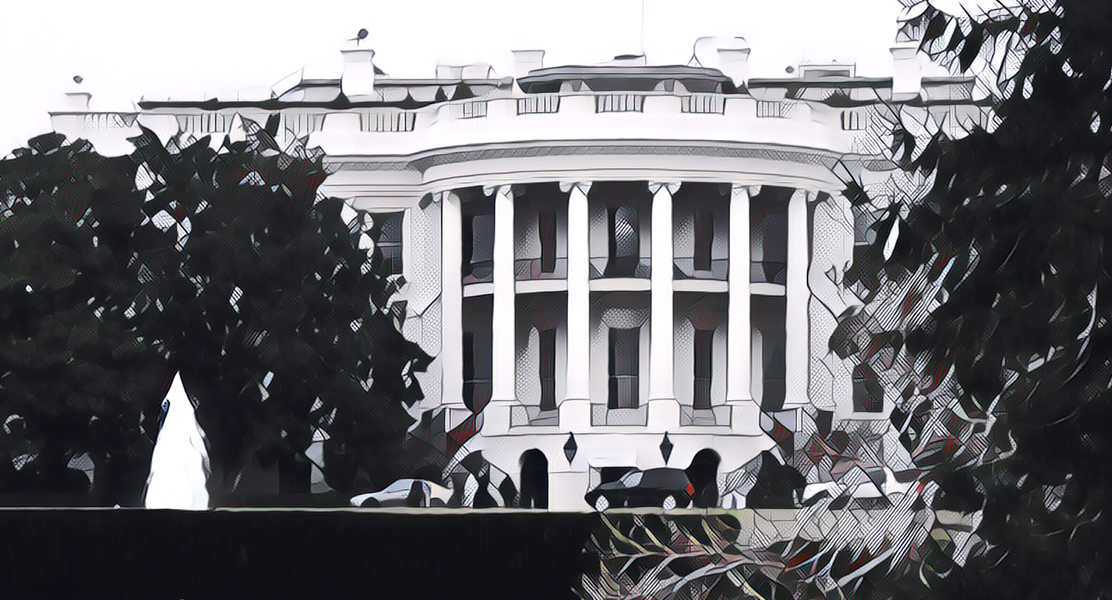Travel ban
Since 2017, the Trump administration’s travel bans have been designed to single out people based on their faith and race under the false pretense of safety, seeking to disguise discrimination as national security policy. BJC continues to call out the dangers of such policies. Learn more about the issue and how you can be involved on this page.

BJC opposes attempts to target anyone for unfair treatment based on religion, including the so-called “travel ban.” These executive actions, which began in 2017, violate and endanger religious freedom by singling out one faith for disfavored treatment. BJC remains concerned that such actions use religious identity as a proxy for “security threat” and a reason for exclusion.
STATUS
On June 4, 2025, President Donald Trump issued a new travel ban, restricting entry from more than a dozen countries. “We must not accept a government that uses religion and ethnicity as proxies for threat,” said BJC Executive Director Amanda Tyler in a statement. “Religious freedom means freedom for all — not just those favored by those in power. The ban’s broad sweep, affecting students, families, businesspeople, and refugees, represents a moral failure and a constitutional affront.”
Interested in showing your opposition to the travel ban? Contact your lawmakers about supporting the “NO BAN” Act.
HISTORY
The first Trump administration’s first travel ban was issued in January 2017, and it included a suspension of visas for immigrants and non-immigrants from seven Muslim-majority countries and a suspension of the refugee resettlement program, with a narrow exception in the future for those who face religious persecution and are considered a religious minority in that country. BJC Executive Director Amanda Tyler said the policy was a ‘back-door bar’ on Muslim refugees and it sends the un-American message that there are second-class faiths.
After re-releasing the ban twice with new language, the U.S. Supreme Court upheld the third iteration of the Trump administration’s “travel ban” on June 26, 2018. The 5-4 decision in Trump v. Hawaii said the order is within the power delegated to the president by Congress.
“We are deeply disappointed by the Supreme Court’s refusal to repudiate policy rooted in animus against Muslims,” said Tyler after that 2018 ruling on the steps of the U.S. Supreme Court. “In giving such broad deference to President Trump, the Court neglects its duty to uphold our First Amendment principles of religious liberty. Safeguarding religious liberty requires the government to remain neutral with regard to religion, neither favoring one religion over another nor preferring religion or irreligion.”
The Trump administration added six more countries in a 2020 edition of the travel ban.
President Joe Biden repealed the Muslim and African travel ban on January 20, 2021 – his first day in office. BJC Executive Director Amanda Tyler called it a “victory for faith freedom” in a statement released that day. “Repealing the ban is an important step, but it does not undo the damage this policy has done to religious freedom,” she said. “If we want to truly preserve faith freedom for all, we as Americans must loudly and clearly denounce religious bigotry in all its forms – now and in the future.”
President Trump never repudiated his hostile statements or tweets directed at Muslims or the subject of Muslim immigration.
Featured
Resources
BJC slams new Trump travel ban as ‘a moral failure and a constitutional affront,’ supports NO BAN Act
Post from June 10, 2025
BJC condemns new travel ban as ‘state-sanctioned discrimination’
Statement from Amanda Tyler on June 4, 2025
Muslim and African travel ban repeal is a ‘victory for faith freedom’
Statement from Amanda Tyler on January 20, 2021
As Trump expands the travel ban, remember this policy’s roots: Unconstitutional anti-Muslim bias
By Amanda Tyler on January 31, 2020
Video of Amanda Tyler on the steps of the Supreme Court after the ruling in Trump v. Hawaii
(June 26, 2018)
Brief from more than 30 constitutional scholars — including BJC’s Holly Hollman (PDF) — in Trump v. Hawaii
Arguing the third iteration of the ban is unconstitutionally based in religious animus toward Muslims
Religious liberty and the travel ban
by Holly Hollman (June 7, 2018)
Hear Amanda Tyler preach a sermon called “Loving and Knowing Our Neighbors”
This 2017 sermon includes a discussion of the travel ban (starting at 9:51)
BJC says Executive Order is a ‘back-door bar’ on Muslim refugees, our country is ‘better than this’
Statement from Jan. 27, 2017, responding to the first iteration of the ban




